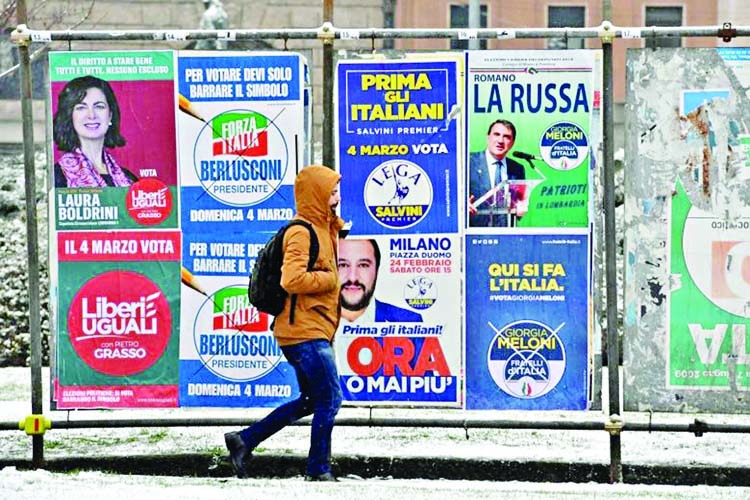Who and what to watch in Italy's general election

Silvio Berlusconi's right-wing coalition, which has the best chance of winning Italy's election today, wants to boot out 600,000 migrants and pump cash into Italian pocketbooks.
An opponent, the Five Star Populist Party, promises an online canvas of its members every time a major decision arises, in an experimental exercise of hyper democracy. And the ruling centre-left party is tanking, even though Italy's economy looks rosier than five years ago when it took power, reports Washington Post.
Here are a few hot topics to watch:
THE SUCCESS OF THE FIVE STAR MOVEMENT
Since the last election five years ago, the anti-establishment party founded by comedian Beppe Grillo in 2009 has become the biggest force in Italy and tops the opinion polls. Yet its members have struggled to transform themselves from swashbuckling outsiders into a group that could plausibly hold power, and they have shown mixed results when they have captured local governments.
The final polls before a 15-day blackout period ahead of the election gave them about 28 per cent of the vote, well short of the roughly 40 per cent needed to capture Parliament.
WHAT HAPPENS TO MIGRANTS
More than 620,000 migrants have arrived in the country since 2013, and former prime minister Silvio Berlusconi has said that immigration is a "social bomb ready to explode in Italy." If the election goes Berlusconi's way, he'll have the chance to try to defuse the situation. But his plan - to try to deport nearly all of those who have arrived - has come under heavy criticism for being inhumane.
WILL BERLUSCONI MAKE A COMEBACK?
The longtime leader and media magnate pioneered the mixture of entertainment and politics that helped Donald Trump win the US presidency. But he was written off as politically dead after he was forced from office in 2011, amid the economic crisis and scandals involving graft and "bunga-bunga" sex parties.
THE FATE OF ITALY'S ECONOMY
Italy's economy grew a modest 1.5 per cent last year (2017), a major improvement over the crisis years but far from enough to make most voters feel the benefits. Youth unemployment is stuck at a stubborn 35 per cent, and overall unemployment is higher than the European average, so many voters are fed up.
